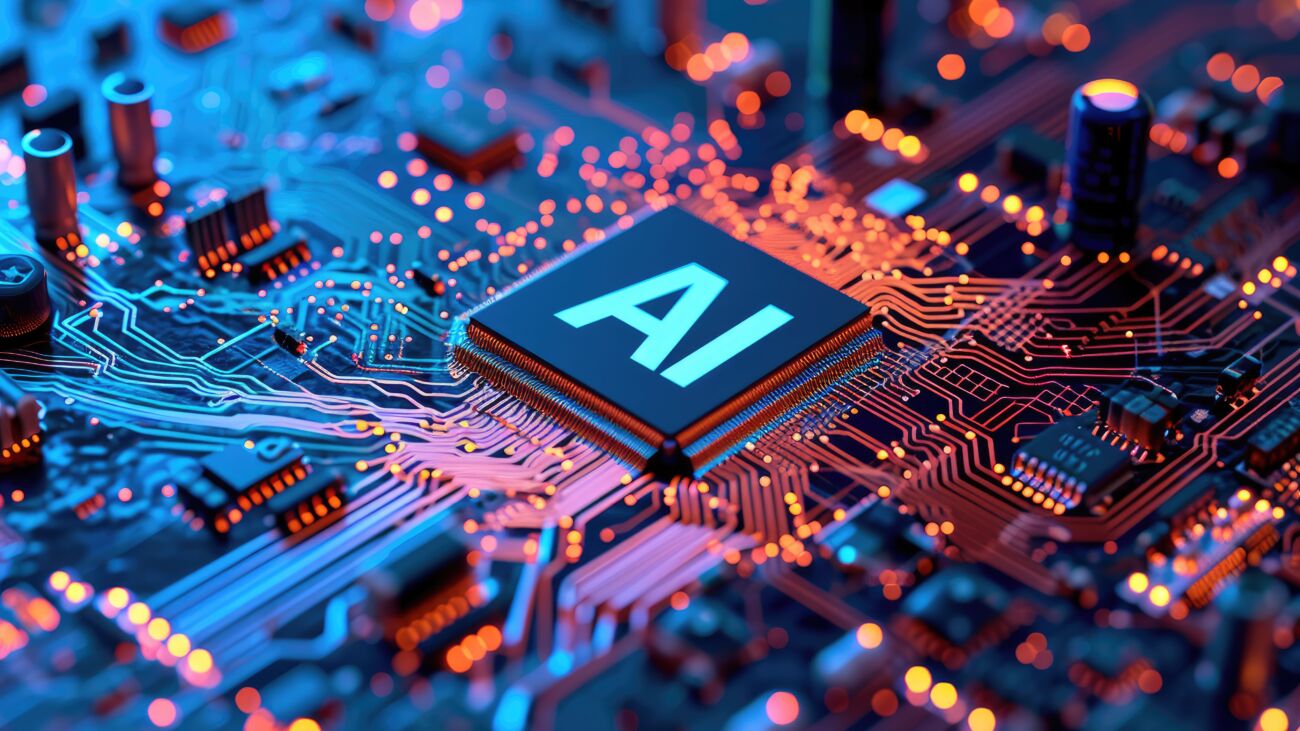What is Artificial Intelligence and Why Should You Care?
Imagine having a computer that can recognize your face, understand what you're saying, and even beat professional players at complex games. That's not science fiction anymore – it's artificial intelligence, and it's everywhere around us. From the apps on your phone to the way Netflix suggests movies, AI is quietly changing how we live, work, and learn.
As a Canadian student looking into this amazing field, I've discovered that AI isn't just about robots taking over the world. It's actually about making computers smart enough to help solve real problems. Whether it's helping doctors diagnose diseases faster or making cars safer, AI is becoming one of the most important technologies of our time. In this guide, we'll explore what AI really is, how it works, and why learning about it could be your gateway to an exciting future career.
Throughout this article, we'll break down complex concepts into simple terms, look at real examples from Canadian companies and universities, and discover the incredible opportunities waiting for young people who want to dive into this field. By the end, you'll understand not just what AI is, but how you can start your own journey into this fascinating world.
Understanding the Basics: What Makes AI Actually Work?
Think of AI like teaching a computer to learn the same way humans do, but much faster. Instead of programming every single rule, we show the computer thousands of examples and let it figure out patterns on its own. This process is called machine learning, and it's the foundation of most AI systems today.
The Three Main Types of AI
There are three main approaches to building AI systems. Supervised learning is like having a teacher show you examples with the right answers. For instance, showing a computer millions of photos labeled "cat" or "dog" until it learns to tell them apart. Unsupervised learning is more like exploring on your own – the computer finds hidden patterns in data without being told what to look for. Finally, reinforcement learning works like training through trial and error, where the computer gets rewards for making good decisions and learns from mistakes.
According to Dr. Sarah Chen, an AI researcher at the University of Toronto, "The beauty of modern AI is that it can adapt and improve over time. We're not just programming rigid instructions anymore – we're creating systems that can learn and evolve." This flexibility is what makes AI so powerful and exciting to work with.
Recent statistics from the Canadian AI Association show that over 75% of AI applications in Canada use supervised learning techniques, making it the most practical starting point for beginners. Companies like Shopify and BlackBerry are investing heavily in these technologies, creating thousands of new job opportunities for skilled professionals.
AI in Action: Real Applications Changing Canada
Walking through downtown Toronto or Vancouver, you're surrounded by AI working behind the scenes. Canadian banks like RBC and TD use AI to detect credit card fraud in real-time, protecting millions of customers every day. Meanwhile, Canadian healthcare systems are using AI to analyze medical images, helping radiologists spot problems they might have missed.
Transportation and Smart Cities
In Calgary, the city's traffic management system uses AI to optimize traffic light timing, reducing commute times by an average of 15%. This might not sound like much, but it saves thousands of hours and reduces pollution across the city. Similarly, the Toronto Transit Commission is testing AI-powered predictive maintenance systems that can predict when subway cars need repairs before they break down.
Professor Michael Rodriguez from McGill University explains, "Canadian cities are becoming living laboratories for AI applications. We're seeing innovations in everything from energy management to public safety, and it's creating incredible opportunities for students who understand these technologies."
Agriculture and Natural Resources
Canada's vast agricultural sector is embracing AI in surprising ways. Farmers in Saskatchewan are using AI-powered drones to monitor crop health and optimize irrigation. These systems can identify problems like pest infestations or nutrient deficiencies weeks before human inspectors would notice them. The result? Higher crop yields and more sustainable farming practices.
In the forestry industry, AI helps predict forest fire risks and manage logging operations more efficiently. Companies like Canfor are using machine learning to optimize lumber cutting patterns, reducing waste and maximizing the value of each tree harvested.
Getting Started: Your Path into AI Learning
The great news about learning AI is that you don't need a PhD in mathematics to get started. Many successful AI professionals began with basic programming skills and built their knowledge gradually. The key is understanding that AI is as much about problem-solving and creativity as it is about technical skills.
Essential Skills and Prerequisites
Start with learning Python programming language – it's the most popular choice for AI development and has excellent beginner-friendly resources. You'll also want to brush up on basic statistics and mathematics, but don't let this intimidate you. Many concepts can be learned as you go, especially with the interactive tools and online courses available today.
Jennifer Park, lead AI instructor at the University of British Columbia, recommends, "Focus on building projects rather than just studying theory. Create simple programs that solve real problems you care about. Maybe build a system that predicts your favorite team's hockey game outcomes, or create an app that identifies birds in your backyard photos."
Canadian institutions like Waterloo, UofT, and UBC offer excellent AI programs, but there are also many online options. Platforms like Coursera partner with Canadian universities to offer courses specifically designed for the Canadian job market. Recent surveys show that 68% of Canadian AI professionals started their learning journey through online courses before pursuing formal education.
Building Your First AI Project
Your first project doesn't need to be revolutionary – it just needs to work. Consider building a simple image classifier that can tell the difference between different Canadian landmarks, or create a chatbot that can answer questions about your favorite hobby. The goal is to understand the complete process from data collection to building and testing your model.
Many successful Canadian AI entrepreneurs started with similar simple projects. The founders of Montreal-based Element AI began by building basic recommendation systems before growing into one of Canada's most successful AI companies. The key is starting small and gradually taking on more complex challenges as your skills develop.
Career Opportunities and Future Outlook
The AI job market in Canada is experiencing unprecedented growth. According to recent government data, AI-related job postings increased by 45% in 2025, with average starting salaries ranging from $75,000 to $120,000 for entry-level positions. Cities like Toronto, Montreal, and Vancouver have become major AI hubs, attracting talent and investment from around the world.
Career paths in AI are incredibly diverse. You could become a machine learning engineer building the algorithms that power recommendation systems, a data scientist uncovering insights from massive datasets, or an AI product manager helping companies integrate these technologies into their business strategies. There are also emerging roles like AI ethics specialists and AI trainers who help ensure these systems work fairly and effectively.
The Canadian government's Pan-Canadian AI Strategy has committed over $400 million to AI research and development, creating even more opportunities for skilled professionals. Major tech companies are establishing Canadian offices specifically to tap into our growing AI talent pool, while homegrown companies are scaling up rapidly to compete on the global stage.
Conclusion: Your AI Journey Starts Now
Artificial Intelligence isn't just a buzzword or a distant future technology – it's a powerful set of tools that's reshaping our world right now. From improving healthcare and transportation to creating new forms of entertainment and communication, AI offers incredible opportunities to make a positive impact while building a rewarding career.
The best part about getting into AI today is that the barriers to entry have never been lower. With online courses, open-source tools, and a supportive community of learners and professionals, you can start building your AI skills immediately. Canada's thriving tech ecosystem provides the perfect environment to learn, experiment, and eventually contribute to this exciting field. Whether you're interested in solving environmental challenges, improving healthcare, or creating the next breakthrough technology, AI provides the tools to turn your ideas into reality. The future of AI is being written right now, and there's never been a better time to be part of that story.


